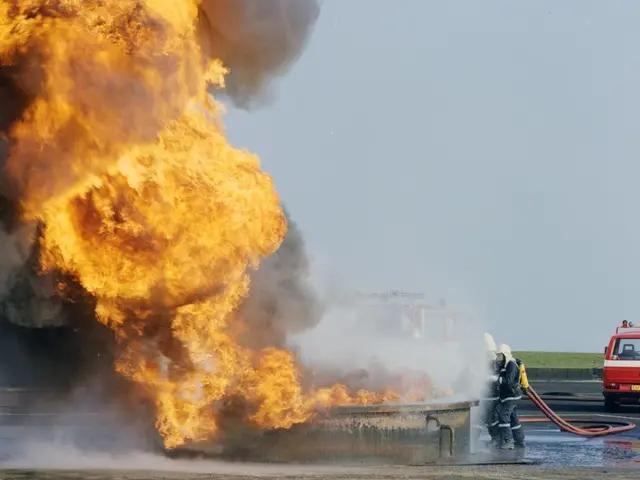Rising Ocean Threat Unveiled in Australia's Climate Report
In the Philippines and Australia, communities are grappling with the increasing threat of flooding, exacerbated by climate change. From small tidal waves to severe tropical storms, the situation is becoming more dire.
In the Philippines, millions of people, particularly those living in coastal regions, are regularly affected by flooding. Experts are urging the need to address man-made causes of flooding to better protect the population from rising sea levels. Unfortunately, mangrove forests, which provide natural protection against flooding, have been destroyed due to industrial environmental interventions and urbanization. Intensive groundwater drilling and land reclamation projects are also contributing factors.
Meanwhile, in Australia, the situation is equally concerning. By 2050, 1.5 million people living in coastal areas will be at risk of sea level rise and coastal flooding. By 2090, this number is expected to rise to around three million. The flooding in New South Wales is currently causing numerous dangerous emergencies on the roads and severe flooding in numerous villages. The Australian Weather Service has declared this to be the worst flooding in the region for over 100 years.
Rescue workers are working tirelessly to evacuate people from flooded areas, using helicopters, boats, and search drones. The Australian government has also announced plans to reduce emissions, aiming to cut carbon emissions by 43% by 2030 and achieve net-zero emissions by 2050.
However, the impact of climate change is already being felt. Fatalities from heat-related illness are expected to soar, and the flooding in eastern Australia has already claimed at least two lives with others missing. Climate change also threatens the homes and livelihoods of over a million Australians by 2050.
Environmental organizations in the Philippines are campaigning for the reforestation of mangrove forests as a protective "green belt." This could help mitigate the effects of flooding and provide a natural buffer against rising sea levels.
As both countries grapple with the impacts of climate change, the urgency to act cannot be overstated. The future of millions of people depends on it.
Read also:
- Amidst India's escalating climate crisis, transgender individuals continue to persevere
- Contentious Discussion Surrounding the Movie Release of "Planet of the Humans"
- Germany's three-month tenure under Merz's administration feels significantly extended
- Norway set to allocate proceeds from sales of tickets for a soccer match against Israel to Médecins Sans Frontières (MSF)








